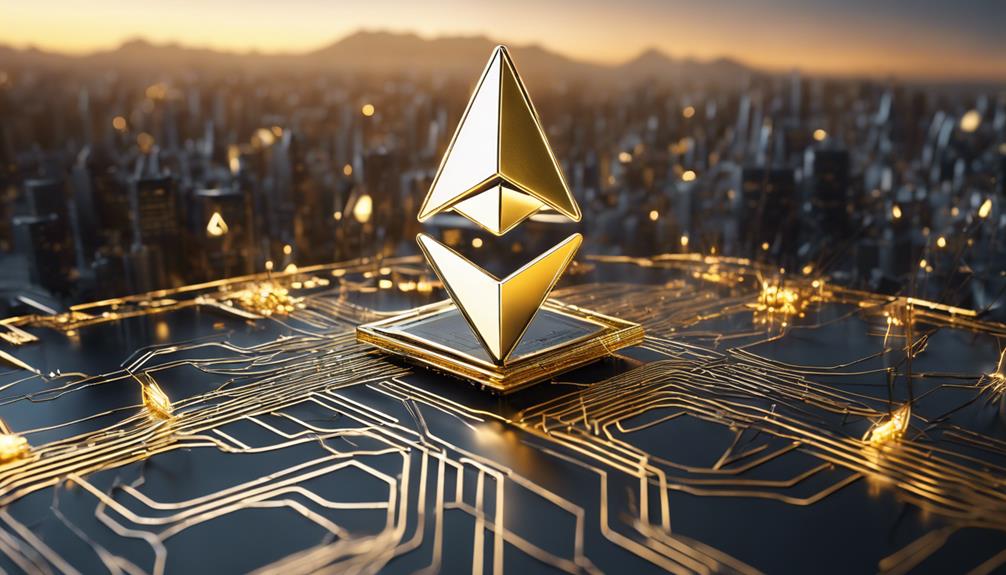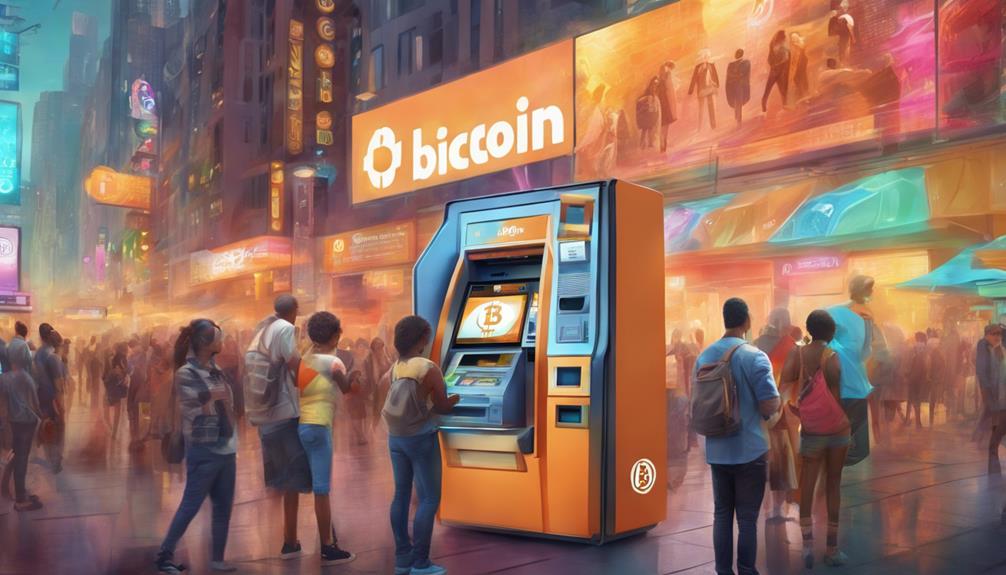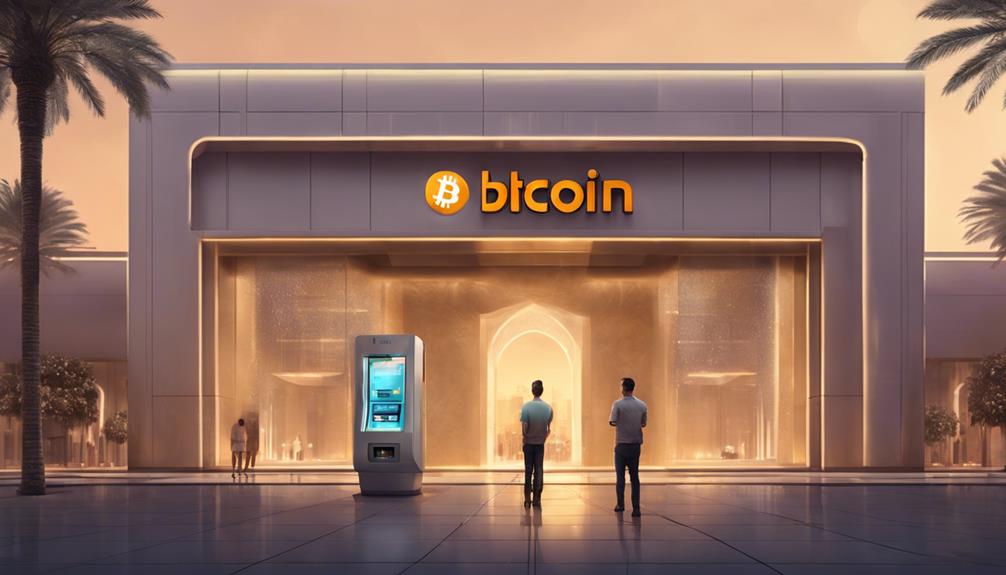7 Tips: Ethereum Defi Vs Binance Smart Chain

As you navigate the complexities of blockchain technologies, you'll find the choice between Ethereum DeFi and Binance Smart Chain isn't just about picking a platform; it's about aligning with the ecosystem that best fits your project's ambitions. While Ethereum offers unparalleled decentralization, Binance Smart Chain leads with efficiency and lower transaction costs. But that's just the surface. Each system has nuanced differences in smart contract capabilities and consensus mechanisms that could sway your decision. Think about what matters most for your development goals. Are you leaning towards robust security or streamlined operations? Reflect on this, as the answer isn't as straightforward as you might think.
Understanding Network Security

When assessing Ethereum's DeFi and Binance Smart Chain, network security emerges as a critical factor. You've probably heard that Ethereum operates on a well-established, decentralized platform. It's secured by a vast network of nodes, making security breaches incredibly challenging. This robustness is partly why Ethereum has been a frontrunner in the DeFi space.
On the other hand, Binance Smart Chain (BSC) offers a different approach. It's less decentralized, relying on a smaller number of validators. This might raise your eyebrows if you're keen on decentralization as a security feature. However, BSC's structure allows for a more controlled environment which can respond quicker to threats and implement updates efficiently.
You might be wondering, "Which is safer?" Well, both platforms have their merits and vulnerabilities. Ethereum's extensive node network inherently disperses risks, making widespread system failures less likely.
BSC, while having fewer nodes, can streamline security protocols and rapidly address vulnerabilities due to its less decentralized nature.
Ultimately, your choice depends on what you prioritize: the iron-clad decentralization of Ethereum or the nimble, yet somewhat centralized nature of BSC. Both platforms continually evolve, striving to balance security with user needs and technological advances.
Transaction Speed and Costs
Transaction speed and costs are crucial factors you'll need to consider when choosing between Ethereum's DeFi and Binance Smart Chain. Ethereum, known for its widespread adoption, often faces high traffic leading to slower transaction speeds and higher costs, especially during peak usage times. You might find that executing a trade or leveraging a service on Ethereum can become costly, with gas fees fluctuating significantly.
On the other hand, Binance Smart Chain (BSC) presents itself as a more cost-effective alternative. BSC achieves higher transaction throughput and lower fees by utilizing a consensus model that requires fewer validators. This can be particularly appealing if you're engaging in frequent transactions or deploying smart contracts that interact often with the blockchain.
However, you should be aware that lower costs and faster speeds on BSC might come at the expense of decentralization, as it's more centralized than Ethereum. This centralization can affect various aspects of network security and trustworthiness.
Ultimately, your choice depends on your specific needs and priorities. If transaction cost and speed are your main concerns, BSC might suit you better. But, weigh these benefits against the broader implications of each blockchain's architecture and governance.
Smart Contract Capabilities

While considering transaction speed and costs, it's equally important to examine the smart contract capabilities of Ethereum's DeFi and Binance Smart Chain. You'll find that both platforms offer unique advantages depending on your needs.
Ethereum, the pioneer in blockchain-based smart contracts, provides a robust and highly secure environment. It supports a Turing-complete language, Solidity, which means you can practically write any logical operation in your smart contract. This flexibility makes Ethereum incredibly powerful for developers looking to implement complex decentralized applications (dApps).
On the other hand, Binance Smart Chain (BSC) is designed to provide faster transactions and lower fees, which it achieves by compromising slightly on decentralization. BSC also supports smart contracts and is compatible with Ethereum's tools and dApps, thanks to its EVM compatibility. This means you can deploy Ethereum-developed applications on BSC with minimal changes.
However, you should consider the trade-offs. Ethereum's network often experiences higher transaction fees and slower speeds during peak times due to its larger user base and more decentralized nature.
BSC, while faster and cheaper, mightn't offer the same level of security and decentralization as Ethereum.
Ultimately, your choice depends on your specific requirements for security, cost, and speed.
Consensus Mechanisms Compared
In comparing the consensus mechanisms of Ethereum's DeFi and Binance Smart Chain, it's crucial to understand the foundational differences that affect their performance and security. Ethereum currently uses a Proof of Work (PoW) system, though it's transitioning to Proof of Stake (PoS) with its Ethereum 2.0 update. This shift aims to enhance scalability and reduce energy consumption.
On the other hand, Binance Smart Chain operates on a Proof of Staked Authority (PoSA), which blends elements from PoS and Delegated Proof of Stake (DPoS), offering faster transaction times and lower fees.
You'll find that Ethereum's PoW model, while secure, significantly limits transaction throughput and increases transaction fees, often making it less attractive for smaller transactions. Conversely, Binance Smart Chain's PoSA allows for a higher transaction capacity and lower fees. However, this efficiency comes at a cost of decentralization. Binance Smart Chain has fewer validators, which centralizes power compared to Ethereum's more distributed network.
Understanding these mechanisms helps you gauge the trade-offs between decentralization, security, and scalability. While Ethereum prioritizes security and decentralization, Binance Smart Chain focuses on scalability and cost-efficiency, shaping your experience and opportunities in DeFi.
Token Standards and Interoperability

Token standards often dictate how smoothly you can interact with different blockchain environments. On Ethereum, you're likely familiar with ERC-20, the ubiquitous standard for fungible tokens. It facilitates not only the creation but also the transfer and handling of these tokens across numerous applications.
Similarly, ERC-721 powers the burgeoning world of NFTs by ensuring each token is unique, thus perfect for digital collectibles.
Binance Smart Chain (BSC) mirrors this approach with its BEP-20 standard, which is compatible with Ethereum's ERC-20. This compatibility means you can port ERC-20 tokens to BSC with minimal hassle, enhancing interoperability between these two ecosystems.
BEP-721, akin to ERC-721, serves the same purpose for non-fungible tokens on BSC, ensuring that unique assets can be managed with ease.
But here's where it gets interesting: the cross-chain compatibility. Tools like Binance Bridge facilitate the seamless transfer of assets between Binance Smart Chain and Ethereum, allowing you to take advantage of the strengths of both platforms. This interoperability is crucial, as it broadens your operational scope, letting you leverage the speed of BSC and the robustness of Ethereum in your decentralized endeavors.
Decentralization Level Assessment
You've seen how interoperability plays a significant role in enhancing the usability of Ethereum and Binance Smart Chain. But let's delve into how decentralized these platforms really are.
Ethereum is known for its broad decentralization, often celebrated as one of its core strengths. This is largely because it has thousands of nodes spread across the globe, contributing to a more robust and less censorable network.
On the other side, Binance Smart Chain (BSC) operates with a considerably smaller number of validators, typically around 21, which Binance themselves select. This centralizes more control within a smaller group, potentially making BSC more susceptible to influence and manipulation by these few parties.
While BSC offers speed and lower transaction costs, which are certainly appealing, you must weigh these benefits against the lesser degree of decentralization compared to Ethereum. Decentralization is crucial because it affects the security and trustworthiness of the platform. The more decentralized, the less likely that control or major decisions can be dominated by any single entity.
Developer Support and Tools

Transitioning from the realm of decentralization, let's pivot to the tools and support available for developers on both Ethereum and Binance Smart Chain.
You'll find that Ethereum, being the older platform, has a robust set of development tools and a large community. Solidity, the primary language for Ethereum, is well-documented and supported by numerous frameworks like Truffle, which simplifies smart contract development and testing.
On the other hand, Binance Smart Chain (BSC) isn't far behind. It supports the same tools and languages as Ethereum, thanks to its compatibility with the Ethereum Virtual Machine (EVM). This means you can use your existing Ethereum tools and DApps on BSC with minimal changes. BSC also offers unique tools like the Binance Smart Chain Studio, which provides an integrated development environment specifically tailored for BSC development.
Both chains offer extensive documentation and vibrant communities that'll guide you through troubleshooting and development. However, Ethereum's maturity gives it an edge in community size and resource diversity.
BSC, while newer, boasts faster transaction speeds and lower fees, which can be crucial depending on your project needs. So, weigh your priorities and choose the platform that aligns best with your development goals.
Conclusion
As you weigh your options between Ethereum DeFi and Binance Smart Chain, consider what's crucial for your project. If security and decentralization top your list, Ethereum's robust node network makes it a standout. However, if you're prioritizing speed and cost-efficiency, BSC's streamlined approach offers clear advantages. Remember, the right choice hinges on your project's specific needs and how well a platform's features align with those priorities. Make your decision wisely, leveraging each network's unique strengths.





